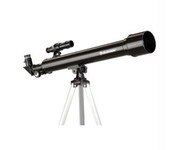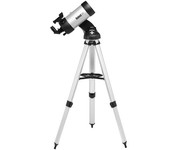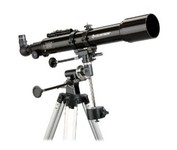Products reviews
Celestron PowerSeeker 50 Telescope$35.00 to $50.00
Tags:celestron, powerseeker, 50, telescope, | Bushnell NorthStar 78-8845 (675 x 114mm) Telescope$325.00 to $440.00
Tags:bushnell, northstar, 78-8845, 675, x, 114mm, telescope, | Celestron PowerSeeker 70 EQ 21037 (35 x 70mm) Telescope$100.00 to $119.00
Tags:celestron, powerseeker, 70, eq, 21037, 35, x, 70mm, telescope, |
Celestron Omni XLT 127 (300 x 127mm) Telescope
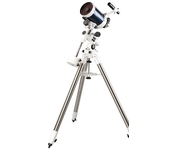
Omni XLT series features the stable platform of the CG-4 mount and high quality optics. Using aspheric shaping technology in conjunction with hand-figuring the optics the Omni XLT presents an image with virtually no spherical abberation. We also added our famous StarBright XLT coating system to further enhance light transmission.Minimize
Bushnell SkyTour 78-9960 (700 x 60mm) Telescope
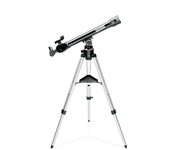
Please do not throw debris into the black hole. Actually, the only rule on this guided trip is that you enjoy the view. The ultimate first telescope, our new Voyager Sky TourTM series gives amateur stargazers a pro-grade audio tour of the night sky. It...
Celestron PowerSeeker 127 EQ 21049 (750 x 127mm) Telescope
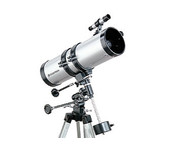
The PowerSeekers come in a choice of refractor or reflector, equatorial or altazimuth mount design. The PowerSeekers come with all coated glass optical components with for enhanced image brightness and clarity. The Newtonian reflectors offer larger aperture and greater light gathering power needed to resolve the faint detail of hundreds of deep-sky and other celestial objects.Minimize
Celestron NexStar 5 SE (300 x 44.45mm) Telescope
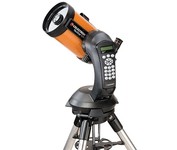
Featuring high-quality Schmidt-Cassegrain optics, the NexStar 5 SE is an ideal telescope for observing and photographing the wonders of space. With a total weight of 28 lbs including the tripod, the ultra portable 5 SE features a precision optical system with 1,250 mm focal length (f/10) standard with our premium StarBright XLT coatings and offers 56% more light gathering power than a 4" model.Minimize
